How To Get Rid Of Hookworms In Your Yard (Do This Now!)

Even with the best of efforts, our yard can become a haven for unwanted critters. Whether they are as big as deer or as small as an insect, each pest brings with it unwanted consequences. Hookworms in particular can be a nasty little thing that carries parasites of all kinds.
There are methods of treatment and prevention that can get rid of hookworms and keep them away. Check for animal droppings ( including your pet) in the yard. Make sure to clean them up as hookworms love animal feces. Then, spread sodium borate to kill the eggs and/or larvae. It is a bit of a process but should leave you hookworm free.
Do You Need Pest Control Services?
Get free, zero-commitment quotes from pro contractors near you.

Why are Hookworms a Problem?
Some pests pose a problem to gardening or landscaping. Others can pose potential health problems for both animals and humans alike. The hookworm falls into the latter category and should be dealt with immediately.
Hookworms and animals. Hookworms can cause pale gums, general weakness, anemia, bloody diarrhea, weight loss, and even death in dogs and cats. It is important that you take your pet to the vet as soon as possible if you see any of these signs.
Hookworms and people. They feed on human blood as well. Hookworms can cause internal bleeding, malnutrition, anemia, loss of iron, weakness, and fatigue. In the most extreme cases, they can even cause death.
Hookworms have been known to cause diarrhea, abdominal comfort, and can actually block up the intestinal tract. The latter can lead to very serious health issues if left unchecked.
How To Remove Hoodworms From Your Yard
Step 1: Gathering Your Tools
The first thing to do is to gather up all the tools that you will need to get the job done. Have a scooper with a handle, a small rake, and some sodium borate ready. And, though most people probably wear shoes in their yard, it is important to note that you should definitely wear shoes in areas that you think may be infected.
There are some species of hookworm that can actually get in through the skin on the bottom of your feet, leading to infection. Do all that you can to avoid hookworm infection as the consequences can be quite nasty to deal with.
Step 2: Confirming Infection
You are likely to notice the aforementioned symptoms in either yourself or your pet before you actually see a hookworm. If you catch the symptoms early enough, it is definitely curable. It is simply important that you act quickly.
Vet exam. Start by taking your pet to a veterinarian to have a physical exam performed. Make sure that you have fresh stool samples with you so that the vet can perform a thorough examination for signs of a potential infection.
Medication. If there is suspicion of hookworms, the vet will likely prescribe some sort of medication to kill off the parasites. Make sure that you follow the vet’s instructions regarding giving the medication. The most important thing here is the confirmation of hookworm. With a clearer picture of what you are facing, you can take the appropriate action.
Step 3: Clean up Animal Droppings
As stated above, hookworms love animal feces. If you live near a wooded area, there is a chance that your pets’ droppings aren’t the only ones in your yard. Make sure that you not only pick up after your pet but check for any other animal droppings in the area.
Twice per day. In the wake of a hookworm infection, it is advised that you clean up all animal droppings at least twice a day. Use a scooper with a handle and a small rake so that you don’t risk getting any on yourself.
Use bags. If you normally discard the droppings in an unlined garbage can, switch to a garbage bag. Doing so will remove the eggs from your yard and prevent them from hatching in your garbage can. If they hatch, there is always the chance that they could reinfect your pets, leading you back to square one.
Step 4: Stop Watering
We hear all the time about how important it is to water our garden and landscape thoroughly. After all, plants need water and the nutrients that it provides to survive. But that watering can actually be fostering the hookworm growth.
Either reduce your watering or stop watering entirely for at least a few days. Doing so will give the soil a chance to dry out. Hookworm eggs require moist soil in order to continue their growth and won’t survive if the dry soil is persistent. Keep an eye out for eggs as you dry out your yard to look for signs that they are dying off.
Step 5: Sodium Borate
Also known as Borax, sodium borate can make for an effective tool when it comes to killing off hookworm eggs and larvae. If you’ve already done a sweep of your yard, spreading sodium borate should do the rest of the job.
How much? For every 100 square feet of ground on your property, you will need about 10 pounds of sodium borate over clay and sandy areas of your yard. Make sure that the Borax is spread evenly. Do not use sodium borate on any areas with grass or plants because it could potentially do harm to them.
Follow instructions. As long as you follow proper precautions and the instructions on the label, Borax is quick and easy to use. Always follow proper safety precautions, especially with something like sodium borate.
How Long Do Hookworms Live in a Yard?
Like most other insects, hookworms don’t have a particularly long life cycle. The larvae known as rhabditiform can grow in the soil and will begin to hit their third-stage of larvae between 5 and 10 days in.
The average life cycle for most infective larvae is about 3 or 4 weeks, though that can vary in favorable conditions. The real issue is their reproduction. They lay many eggs, refurbishing their infestation over and over again if they are not dealt with accordingly.
Does Cold Weather Kill Hookworms?
If you live in a colder climate, you may feel that you can simply wait for the temperatures to drop instead of having to deal with these nasty critters. In some instances, you would be right. In others, though, that won’t do it.
The Ancylostoma species of hookworm eggs will die off in freezing temperatures. But the Uncinaria species aren’t quite that easy to kill. They are able to survive in those lower temperatures. Keep in mind that hookworm larvae, however, can’t persist in the environment on a long-term basis the way that other intestinal parasites can. At best, they may be able to survive in your soil for a couple of months.
Treating a Hookworm Infection
What Medications Would be Required to Treat Hookworm?
The answer to this question depends on whether the subject being treated is a person or an animal. Obviously, there would be different medications for each of them but there are indeed medications that can treat hookworm infection.
For humans. There are parasite-killing drugs that can be prescribed in the event of a hookworm infection. Mebendazole, albendazole, and pyrantel pamoate are the most commonly prescribed drugs that do a great job.
Should you experience symptoms of anemia, that will require different treatment. More often than not, increased protein in the diet will do the trick though complications can change that from person to person.
For pets. Heartgard is perhaps the most effective form of medication for treating parasites in pets. The great thing about Heartgard is that it prevents heartworm disease in addition to treating and controlling those parasites (like roundworms and hookworms).
Heartgard works to kill the larvae, stopping them from developing into either juvenile or adult heartworms, keeping the associated diseases at bay.
Are There Natural Remedies to Treat Hookworm?
If you don’t want to take any one of the aforementioned drugs, there are a number of natural ways to not only treat but prevent worms like hookworm.
- Pumpkin seeds. Not only are they great to chew on, pumpkin seeds have an amino acid known as cucurbitacin that makes for a highly effective deworming agent.
- Carrots. Carrots are known for being a great source of vitamin A. They can also help get rid of worms in both people and dogs, too.
- Tumeric. A little turmeric in the diet can go a long way towards keeping worms of all sorts away.
- Chamomile. A popular tea with many health benefits, though this one may not be quite as known as some of the others.
Do You Need Pest Control Services?
Get free, zero-commitment quotes from pro contractors near you.

Related Questions
Can Hookworms Live in my House?
We know that hookworms do well in warmer climates and primarily live in soil and feast on animal feces. That doesn’t mean that 100% indoor pets are no longer at risk, however. They are still just as susceptible for one major reason.Other bugs. There are other bugs that can actually carry the infective larvae of hookworms with them into the home (think cockroaches). If your pet eats that insect, it is also consuming the infective larvae as well. That is why it is important to be vigilant when it comes to bugs and giving your pet the chance to consume them.

Ryan Womeldorf has more than a decade of experience writing. He loves to blog about construction, plumbing, and other home topics. Ryan also loves hockey and a lifelong Buffalo sports fan.
More by Ryan Womeldorf










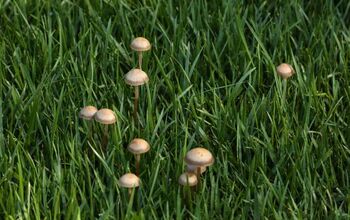
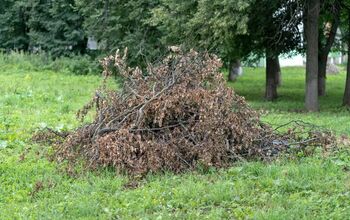

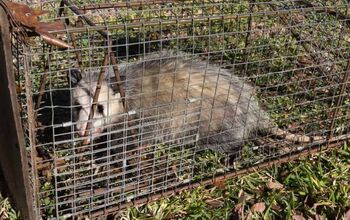
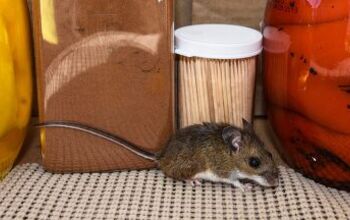

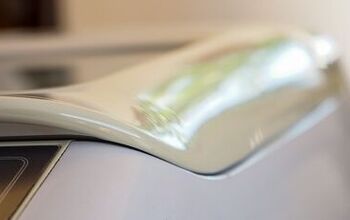




![Standard Dining Room Table Dimensions [for 4, 6, 8, 10 and 12 People]](https://cdn-fastly.upgradedhome.com/media/2023/07/31/9074335/standard-dining-room-table-dimensions-for-4-6-8-10-and-12-people.jpg?size=350x220)





